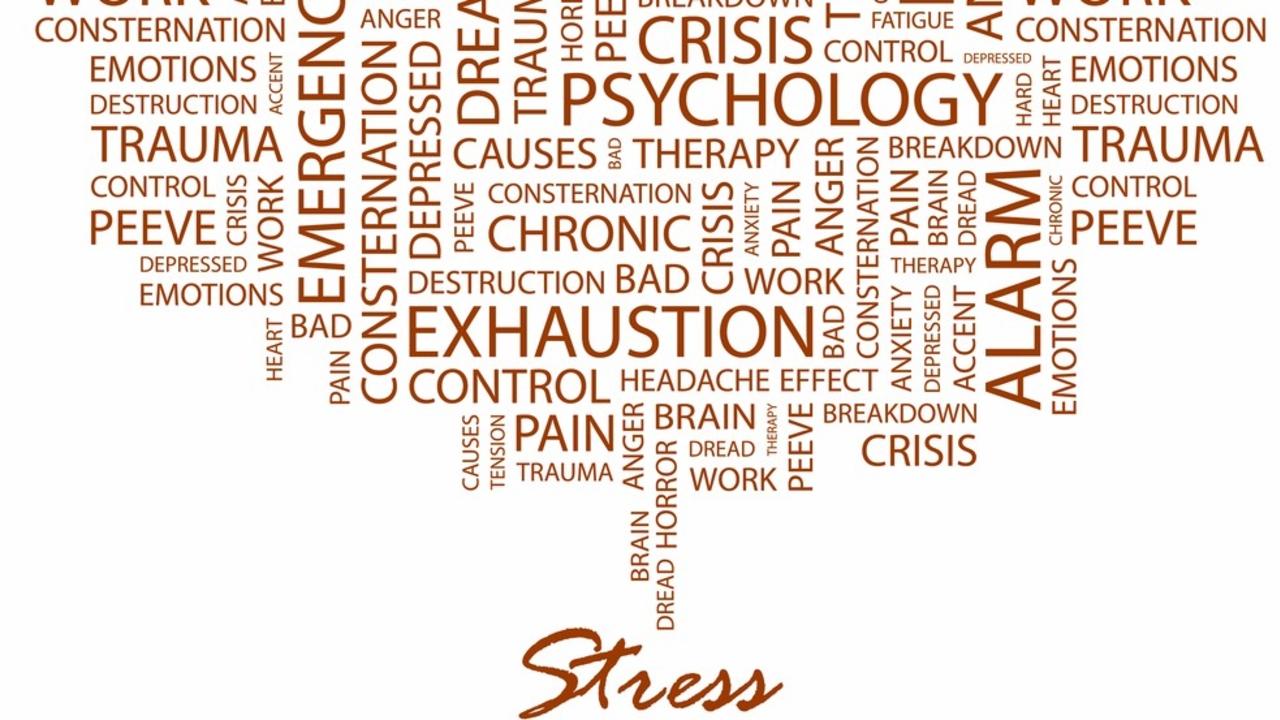You Might Be More Stressed Than You Think

You Might Be More Stressed Than You Think
Do any of these sound familiar?
Low energy and chronic fatigue. Dizziness when you stand up quickly. Asthma and allergies. Sunlight sensitivity (bright lights hurt your eyes, you constantly wear sunglasses). Muscle and joint pain. Anxiety, panic attacks, and blood sugar crashes. Insomnia. Low sex drive. Digestive issues. Heart palpitations. Thyroid problems.
These symptoms seem random and unconnected.
They're not.
There's one common link: stress and adrenal dysfunction.
Here's why stress affects every system in your body, how to recognize when you've exceeded your adaptive capacity, and what to do about it.
The Problem With How Medicine Views Stress
Most conventional doctors don't recognize the gray zone between "healthy" and "diseased."
In orthodox medicine, you're either pathologically sick (Addison's disease, Cushing's syndrome) or you're fine. There's no middle ground.
But pathology doesn't appear overnight. You don't wake up one morning with massively clogged arteries or cancer. Disease develops gradually, in stages, over years.
This means organs and glands must function suboptimally for extended periods before they reach diagnosable pathology.
Your adrenal glands can be exhausted—producing inadequate cortisol and DHEA—without meeting diagnostic criteria for disease. You're symptomatic, but your labs look "normal."
This is adrenal hypofunction. And it's destroying your quality of life even though conventional medicine says you're "fine."
General Adaptation Syndrome: The Three Stages of Stress
Hans Selye, the pioneering stress researcher, identified three stages the body moves through when exposed to chronic stress. He called this the General Adaptation Syndrome (GAS).
Stage 1: Alarm
Your body encounters a stressor (physical injury, infection, psychological stress, poor diet). The adrenal glands release cortisol and adrenaline to help you adapt.
This is protective short-term. You have more energy, sharper focus, and heightened immune response.
Stage 2: Resistance
If the stressor persists, your body adapts and maintains elevated cortisol output to cope. You function, but you're burning through reserves.
You might not feel stressed during this phase. You're "managing." But your adrenals are working overtime behind the scenes.
Stage 3: Exhaustion
Your adrenal glands can't keep up anymore. Cortisol production drops. DHEA declines. Aldosterone becomes imbalanced.
Now the symptoms hit: fatigue, immune dysfunction, allergies, blood sugar crashes, anxiety, insomnia, digestive problems, hormone imbalances.
You've exceeded your adaptive capacity. Your system is breaking down.
Most people don't realize they're in Stage 3 until they're completely non-functional.
The Four Types of Stress (That Add Up)
We think of stress as emotional—work pressure, relationship conflict, financial worry.
But your body doesn't distinguish between emotional stress and physical stress. It all activates the same stress response system.
1. Physical Stress
- Overtraining or under-exercising
- Chronic pain or injury
- Poor posture or structural imbalances
- Sleep deprivation
- Surgery or trauma
2. Chemical Stress
This is the biggest stressor in modern society.
- Poor diet (too much sugar, not enough fats, nutrient deficiencies)
- Food sensitivities (wheat, corn, dairy, soy)
- Airborne allergens (pollen, dust, mold)
- Toxins (pesticides, heavy metals, plastics)
- Medications (suppress symptoms but add metabolic load)
3. Thermal Stress
- Heat stroke or hypothermia
- Extreme temperature fluctuations (going from 100°F heat into 70°F air conditioning)
- Chronic cold exposure without adaptation
4. Electromagnetic Stress
- Constant fluorescent lighting
- Excessive screen time (blue light disrupts circadian rhythm)
- Sunburn (severe UV damage)
These stressors are cumulative.
You might not feel emotionally stressed, but if you're eating inflammatory foods, sleeping 5 hours a night, overtraining, and exposed to toxins, your adrenals are exhausted.
Why Adrenal Dysfunction Causes All These Symptoms
Your adrenal glands produce hormones that regulate nearly every system in your body.
When cortisol and DHEA production decline, everything falls apart.
Low energy and fatigue: Cortisol mobilizes glucose and supports mitochondrial function. Without adequate cortisol, cells can't produce ATP efficiently.
Dizziness when standing: Aldosterone regulates sodium retention and blood volume. When aldosterone is low, blood pressure drops, causing orthostatic hypotension (dizziness upon standing).
Asthma and allergies: Cortisol suppresses inflammation and regulates immune response. When cortisol is depleted, inflammation runs unchecked and allergic reactions intensify.
Blood sugar crashes: Cortisol raises blood glucose between meals. When cortisol is low, blood sugar drops, causing hypoglycemia, anxiety, and cravings.
Anxiety and panic attacks: Low cortisol triggers adrenaline surges to compensate for inadequate stress response. This creates the sensation of panic and anxiety.
Insomnia: Cortisol follows a circadian rhythm (high in morning, low at night). When this rhythm is disrupted, you're wired at night and exhausted in the morning.
Low sex drive: DHEA is the precursor to testosterone and estrogen. When DHEA declines, sex hormones drop, libido crashes, and reproductive function suffers.
Digestive issues: Cortisol regulates gut motility, stomach acid production, and intestinal barrier integrity. Adrenal dysfunction contributes to IBS, leaky gut, and food sensitivities.
Thyroid problems: The adrenals and thyroid work together. When adrenals are exhausted, thyroid function declines even if thyroid hormone levels appear normal on labs.
One dysfunctional gland cascades into system-wide breakdown.
How to Restore Adrenal Function
You can't eliminate all stress. But you can reduce the controllable stressors and support recovery.
Step 1: Fix Your Diet
Chemical stress (food) is the easiest stressor to control—and the most impactful.
What destroys your adaptive reserves:
- Eating foods you're sensitive to (wheat, corn, dairy, soy)
- Eating foods that spike and crash blood sugar (sugar, refined carbs)
- Not eating enough (chronic calorie restriction)
- Eating too much (constant digestive load)
- Not eating frequently enough (blood sugar crashes)
- Eating too frequently (no digestive rest)
- Not drinking enough water (dehydration adds metabolic stress)
What supports adrenal recovery:
- Prioritize protein and healthy fats at every meal
- Eliminate sugar and refined carbohydrates
- Remove food sensitivities (wheat, corn, dairy, soy)
- Eat within an hour of waking
- Don't skip meals
- Hydrate adequately (2/3 body weight in ounces daily)
For comprehensive nutrition strategies that support adrenal function and reduce chemical stress, visit the Fuel Your Body pillar page.
Step 2: Optimize Physical Activity
Humans are designed for lots of low-intensity movement with occasional bursts of high intensity.
Most people do the opposite: high-intensity stress all week, then crash on the weekend.
What works:
- Daily low-intensity movement (walking, swimming, gentle yoga)
- 1-2 short high-intensity sessions per week (sprints, heavy lifting)
- Prioritize rest and recovery
What doesn't:
- Chronic cardio (daily 45-60 minute runs or bike rides)
- Overtraining without adequate recovery
- No movement at all
Movement supports stress adaptation. But excessive exercise without recovery depletes adrenals further.
Step 3: Prioritize Sleep
Sleep is when adrenal recovery happens. If you're not sleeping 7-9 hours consistently, you're not recovering.
Sleep hygiene basics:
- Go to bed by 10 PM (cortisol rebuilds between 10 PM and 2 AM)
- Keep bedroom dark and cool
- Avoid screens 1-2 hours before bed
- Maintain consistent sleep/wake times
Step 4: Work With a Practitioner
Adrenal dysfunction doesn't resolve with generic wellness advice. You need personalized assessment and intervention.
Applied Kinesiology practitioners can identify structural, chemical, and emotional imbalances contributing to adrenal exhaustion.
For more on supporting your body's stress response systems, visit the Regulate Your System pillar page.
The Bottom Line
You're more stressed than you think.
Not because you're emotionally fragile—because your body is under constant physical, chemical, thermal, and electromagnetic stress that adds up.
Your adrenals can only compensate for so long before they exhaust.
The symptoms you're experiencing—fatigue, allergies, blood sugar crashes, anxiety, insomnia, digestive issues—aren't separate problems. They're all downstream effects of adrenal dysfunction.
Fix the diet. Optimize movement. Prioritize sleep. Test comprehensively.
Your adaptive reserves can rebuild. But you have to stop depleting them faster than they recover.
Struggling with chronic fatigue, allergies, anxiety, or blood sugar issues despite "doing everything right"? Dr. JJ Gregor uses Applied Kinesiology to identify the root causes of adrenal dysfunction in his Frisco, Texas practice. Schedule a consultation to restore your stress response system.
Stay connected with news and updates!
Join our mailing list to receive the latest news and updates from our team.
Don't worry, your information will not be shared.

